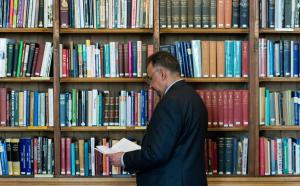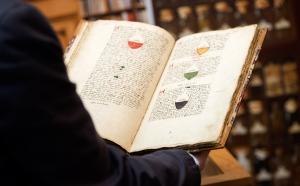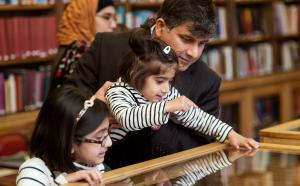
Daniel Rutherford
(3 November 1749 – 15 November 1819)
College Role:
President

Notable Achievements
Rutherford was president of the Royal College of Physicians of Edinburgh from 1 December 1796 to 5 December 1798.
On 1 December 1786 Rutherford succeeded John Hope as Professor of Botany in the university and keeper of the Royal Botanic Garden at Edinburgh.
In 1788, Rutherford was elected fellow of the Philosophical (afterwards the Royal) Society of Edinburgh.
In 1796, Rutherford was elected fellow of the Linnean Society.
Key Publications
- De aere fixo dicto aut Mephitico (1772)
- Characteres generum plantarum ex systemate vegetabilium Linnaei et Horto Kewensi praecipue excerpti (1793)
Biography
Daniel Rutherford was born in Edinburgh on 3 November 1749 to Dr John Rutherford. He studied medicine at the University of Edinburgh under William Cullen and Joseph Black. Rutherford obtained his MD in 1772. His dissertation, titled “De aere fixo dicto aut mephitico,” established a distinction between carbonic acid gas and nitrogen. Rutherford is most famous for his discovery of the isolation of nitrogen and his inaugural dissertation.
After the publication of his dissertation and completion of studies, Rutherford travelled to France in 1773 and Italy. Rutherford returned to Edinburgh in 1775 where he set up a private practice. Rutherford had considerable involvement in the Royal College of Physicians of Edinburgh, becoming licentiate, fellow and president. (see below) He also acted as secretary of the College for eleven years and censor for six.
In 1786, Rutherford was appointed Professor of Botany and keeper of the Royal Botanic Gardens. In 1791, Rutherford succeeded Henry Cullen as physician in ordinary to the Royal Infirmary where he delivered clinical lectures in tandem with Andrew Duncan and Francis Home. Furthermore, Rutherford was the first Professor of Practice of Physic at the University of Edinburgh and played a significant role in the development of clinical teaching at the university’s medical school.
Rutherford was the uncle of novelist Sir Walter Scott. He was also a member of the Aesculapian, Harveian, and Gymnastics clubs.
He died on 15 November 1819 in Edinburgh.



